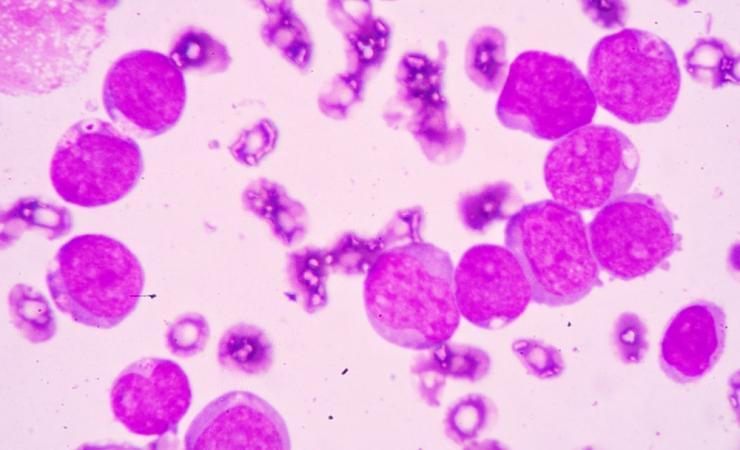The decision to perform stem cell transplant therapy is not taken lightly. In simple terms, it involves an incredibly invasive series of procedures that essentially destroy a person’s natural immune system, before replacing it with a new one. It can take months to recover, and can even be fatal. That’s why when doctors decide to go ahead with stem cell therapy, they have to be really thorough in weighing the potential benefits against the risks.
The first line treatment for the blood cancer acute myeloid leukaemia (AML) is intensive chemotherapy. Once patients go into remission (meaning the cancer can no longer be detected), they are categorised into three risk categories (low, intermediate, advanced), according to how likely the cancer is to come back. This judgement is based on parameters like age, gender, molecular genetic mutations, and chromosomal abnormalities. People in the low- and intermediate-risk group are not good candidates for stem cell transplantation because of the risks. But those whose cancer is more likely to return are often advised to undergo the procedure.
The current methods used to predict who should be put forward for this therapy, called allogeneic hematopoietic stem cell transplantation (alloHSCT), can be improved. The IMI project HARMONY have developed a prototype machine learning tool using data on numerous different parameters from 842 patients with AML. The tool produces a graphic that describes the probability of relapse-free survival over time. It’s still a prototype, but ultimately, it should help clinicians to carefully weigh the risks and benefits to patients.
HARMONY is supported by the Innovative Medicines Initiative, a partnership between the European Union and the European pharmaceutical industry.
